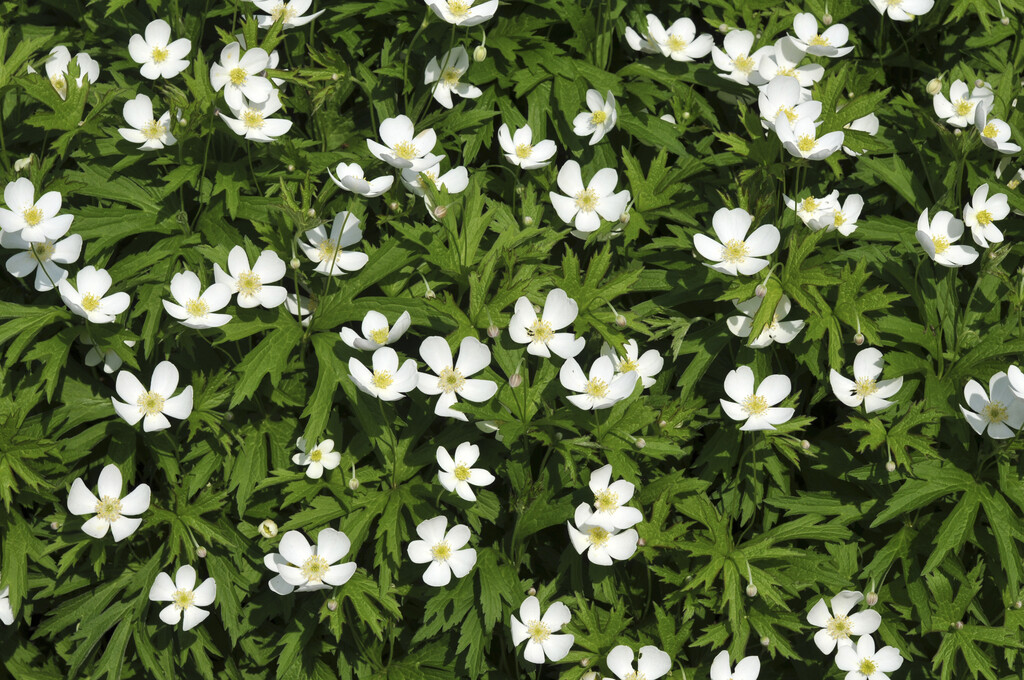Anemone canadensis
American meadow anemone
Robust, fibrous-rooted perennial about 60cm tall, with long-stalked mid to dark green leaves have 3-5 lobes, hairy beneath. 5-petalled white flowers with yellow anthers, are produced on branched stems from late spring to midsummer
Size
Ultimate height
0.1–0.5 metresTime to ultimate height
2–5 yearsUltimate spread
0.1–0.5 metresGrowing conditions
Moisture
Moist but well–drainedpH
Acid, Alkaline, NeutralColour & scent
| Stem | Flower | Foliage | Fruit | |
| Spring | White | Green | ||
|---|---|---|---|---|
| Summer | White | Green | ||
| Autumn | ||||
| Winter |
Position
- Partial shade
Aspect
East–facing or North–facing or West–facing
Exposure
Exposed or Sheltered Hardiness
H6Botanical details
- Family
- Ranunculaceae
- Native to GB / Ireland
- No
- Foliage
- Deciduous
- Habit
- Spreading branched
- Genus
Anemone are herbaceous perennials with fibrous, rhizomatous or tuberous rootstocks, palmately lobed leaves and saucer-shaped, usually 5-petalled flowers
- Name status
Correct
How to grow
Cultivation
Grow in moist but well-drained humus-rich soil in part shade. Drier conditions are tolerated when dormant in summer. Ideal for woodland planting or a wild garden, but may have the potential to become a nuisance in favourable conditions. See anemone cultivation
Propagation
Propagate by seed, sowing them in containers in a cold frame when ripe or separate the rhizomes in spring or summer when the foliage has died back
Suggested planting locations and garden types
- Cottage and informal garden
- Prairie planting
- Wildflower meadow
Pruning
No pruning required
Pests
May be susceptible to leaf eelworms and damage from caterpillars and slugs
Diseases
May be susceptible to Powdery mildews
Get involved
The Royal Horticultural Society is the UK’s leading gardening charity. We aim to enrich everyone’s life through plants, and make the UK a greener and more beautiful place.
